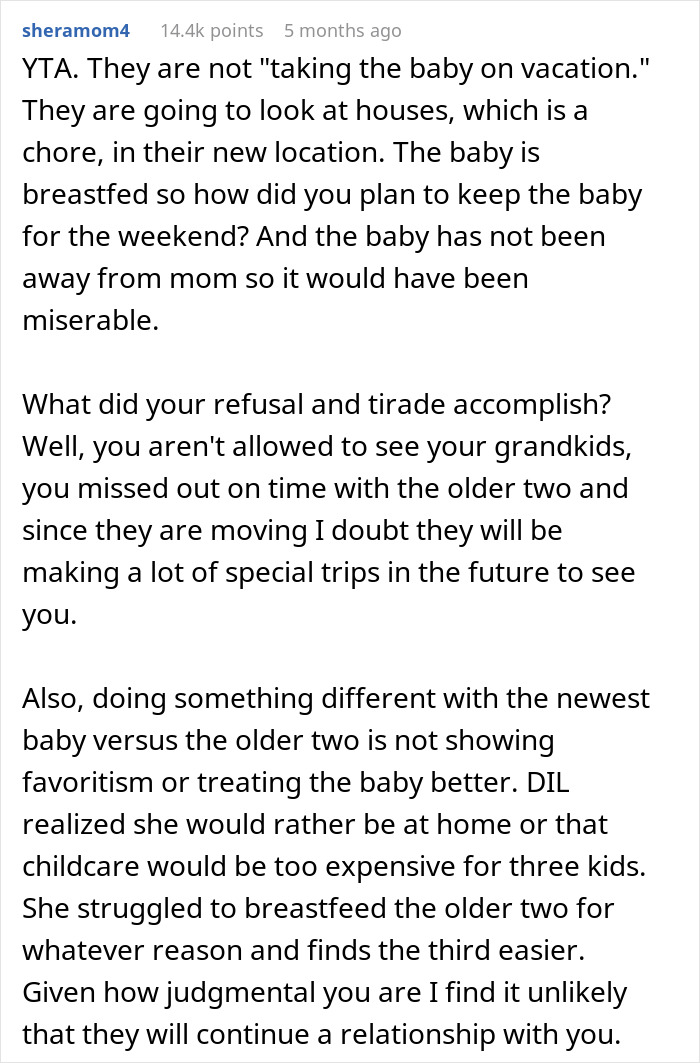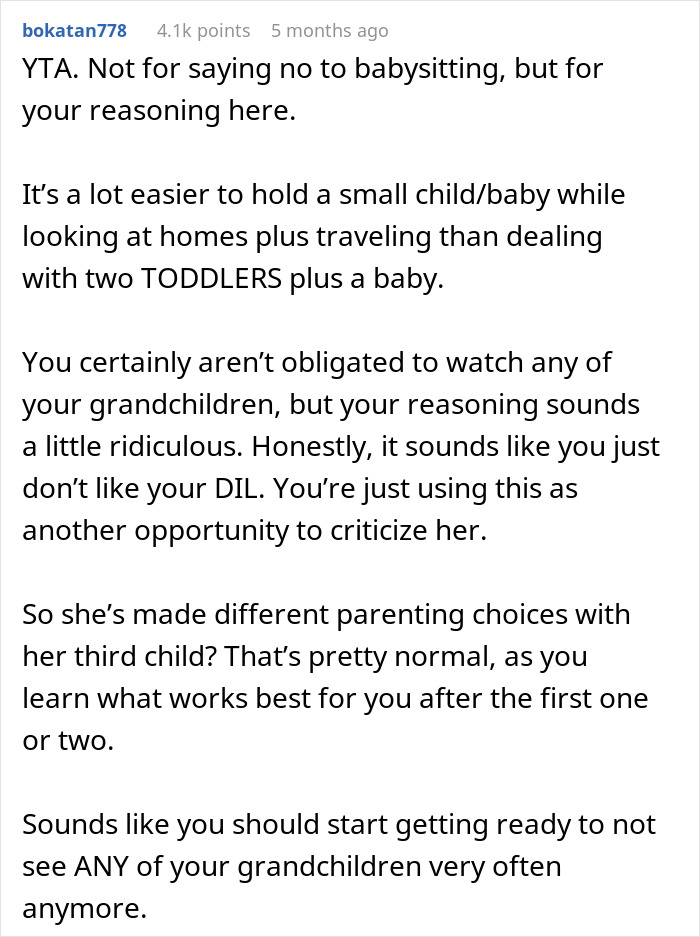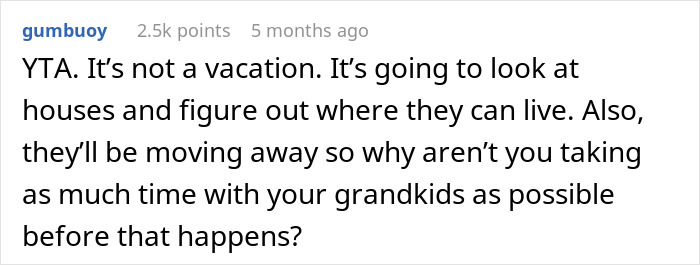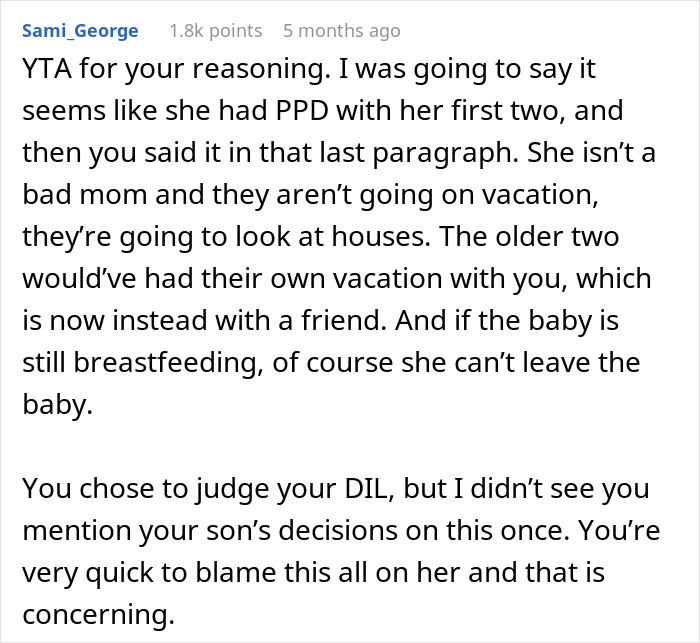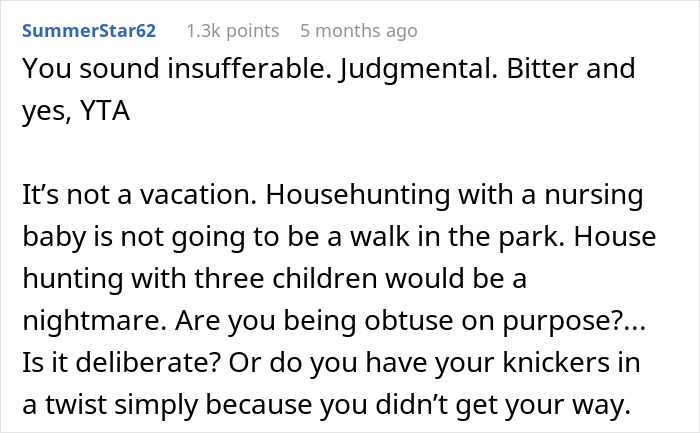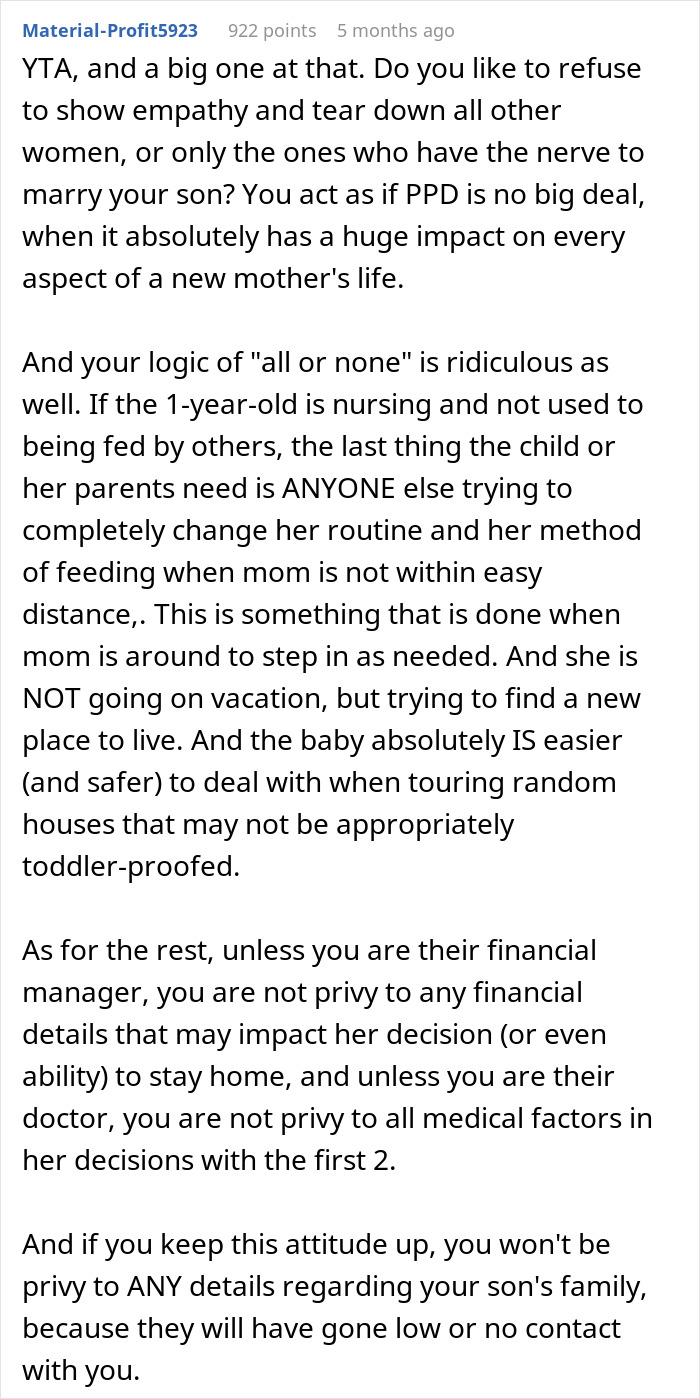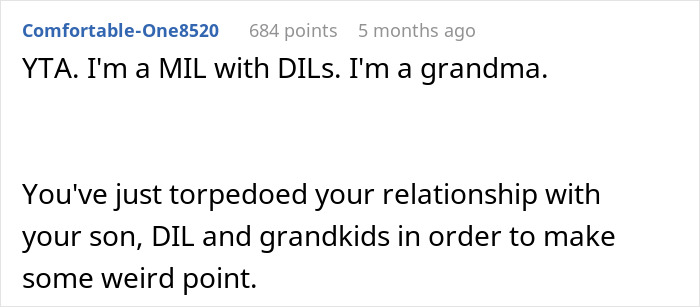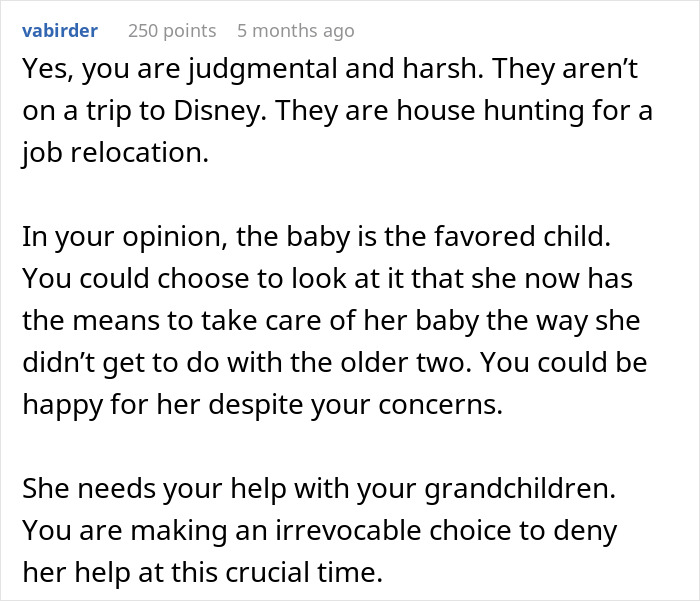Being a grandparent is supposed to be the sweet spot of parenting. I mean, you get the cuddles, the cute crafts, and none of the 3 a.m. diaper disasters. But what happens when a grandparent starts questioning how her grandchildren are being raised? More importantly, what happens when she voices those concerns just a little too loudly?
That’s exactly the situation today’s Original Poster (OP) found herself in when she was asked to babysit two of her grandkids for the weekend. What was supposed to be a simple favor quickly turned into a standoff about parenting styles and favoritism. And now, she’s not just missing a weekend with the kids, she’s wondering if she may have hurt her relationship with the whole family.
More info: Reddit
It’s easy to jump to conclusions about someone’s actions, especially when their choices don’t align with our own
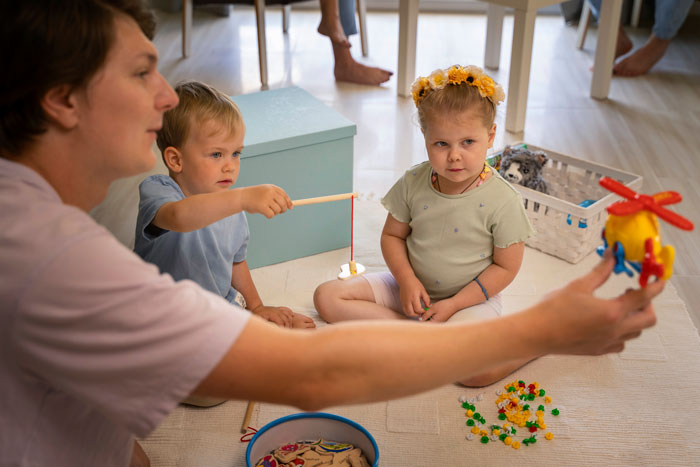
Image credits: freepik / Freepik (not the actual photo)
The author had always believed her daughter-in-law favored her youngest child more than her other two kids
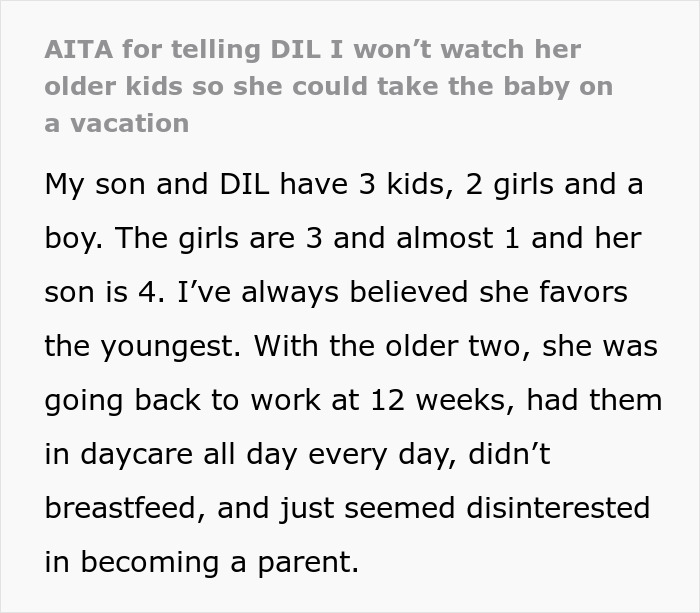
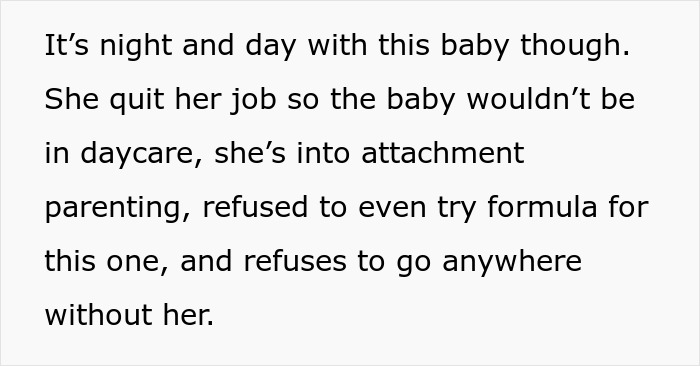
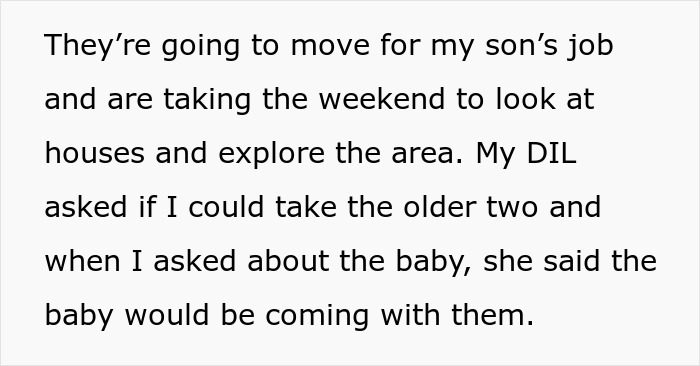
Image credits: grandchildfavoritism

Image credits: freepik / Freepik (not the actual photo)
Her son was hoping to relocate with the family, so he and the daughter-in-law had to go and check out a house, but she couldn’t go with all three kids
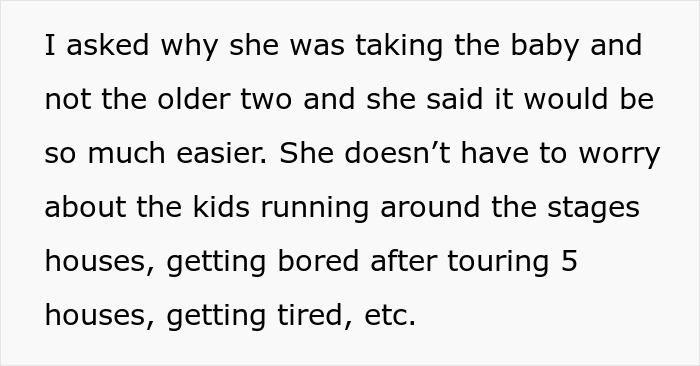
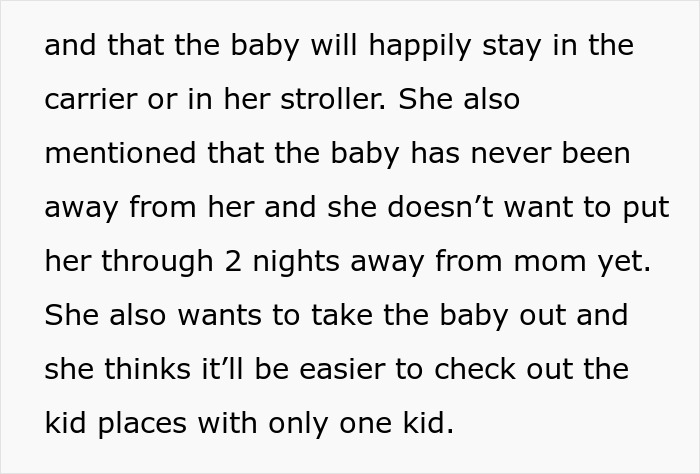
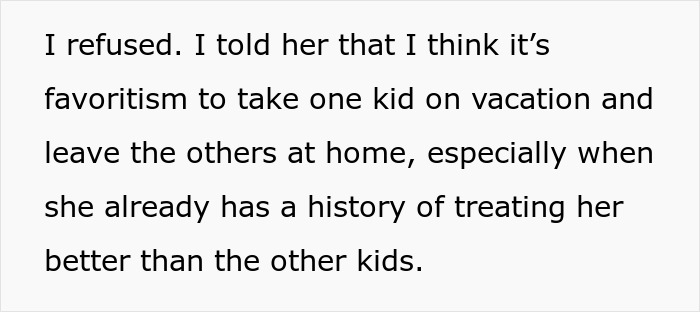
Image credits: grandchildfavoritism
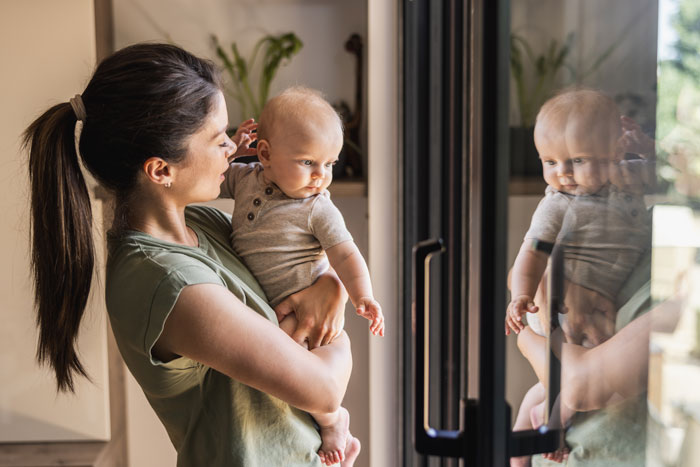
Image credits: milanmarkovic / Freepik (not the actual photo)
Due to this, she asked the author if she could help watch the two kids while she went with the baby, but she refused

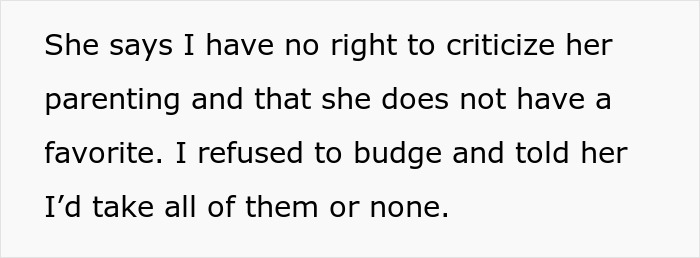
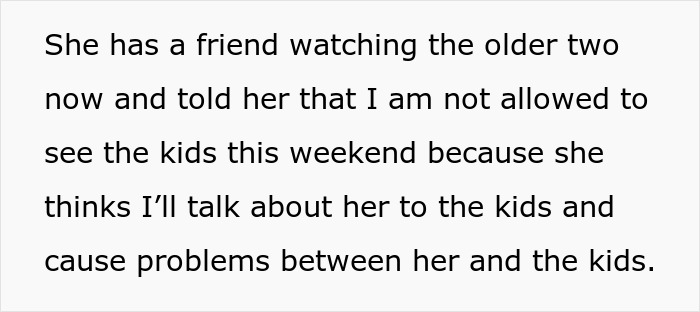
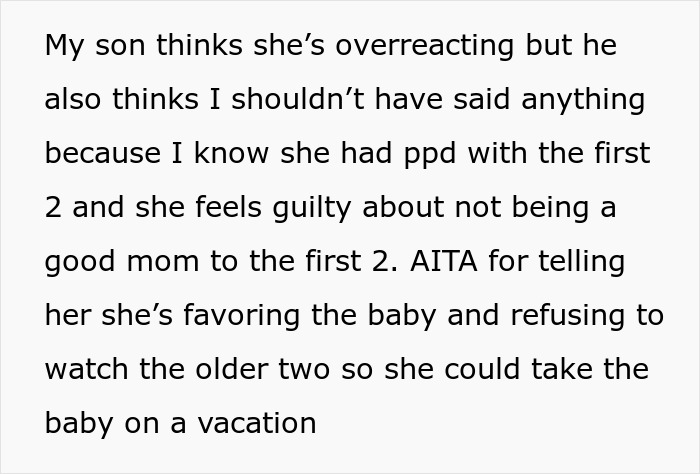
Image credits: grandchildfavoritism
She insisted that the daughter-in-law was only taking the baby with her because she was playing favorites and demanded that all the kids stay with her
The OP shared that her daughter-in-law’s parenting approach drastically changed with the birth of the third child. Unlike her first two kids, who were in daycare at 12 weeks and were formula-fed, this baby has become the center of an attachment-parenting universe. The daughter-in-law even quit her job, refuses to leave the baby, and won’t even entertain the idea of using formula.
These raised red flags for the OP, who suspected the baby was getting special treatment from the get-go. It felt personal, especially since she was more hands-off with the first two. However, the real drama kicked off when the daughter-in-law and her husband planned a weekend trip to scope out new housing for his job relocation.
The daughter-in-law asked if the OP could watch the older kids, but clarified that the baby would be going with them. Her reasoning was that the baby was easier to manage, had never been apart from her, and could be strolled or carried around without much fuss. However, the OP pushed back as she felt it was wrong to take one kid on what could feel like a fun vacation while the others stayed behind.
She then said she’d either watch all the kids or none, so the daughter-in-law found a friend to watch the kids and told the OP that she was banned from seeing them that weekend. While her son agreed that his wife may have overreacted, he also reminded his mom that she had suffered postpartum depression with the first two kids, and that guilt might be fueling her bond with the third.

Image credits: EyeEm / Freepik (not the actual photo)
Mayo Clinic explains that postpartum depression (PPD) is more severe and longer-lasting than the typical “baby blues.” While the baby blues fade in a couple of weeks, PPD can seriously affect a parent’s ability to care for their baby and manage daily responsibilities. It often begins within the first few weeks after childbirth, but it can also start during pregnancy or even months later.
WebMD affirms that a lot of women who have had to go through postpartum depression often develop an attachment parenting style with their next child. They explain that this type of parenting centers on building a deep, nurturing bond between parent and child. It emphasizes emotional closeness through practices like breastfeeding, skin-to-skin contact, and consistently responding to a baby’s needs.
According to The Gottman Institute, setting boundaries with family, especially grandparents, can be emotionally challenging but is essential for maintaining healthy relationships. They acknowledge that it’s not uncommon for grandparents to offer unsolicited parenting advice, often coming from a place of concern or personal experience.
However, their recommended approach includes acknowledging the intention behind their behavior, expressing your own boundaries using gentle, respectful communication, and being open to hearing their feelings and limits as well.
Netizens insisted that the OP was in the wrong, not for declining to babysit, but for the judgmental reasoning behind it. They pointed out that house-hunting with a breastfeeding infant is not a vacation, and that evolving parenting choices don’t automatically mean favoritism, especially when earlier experiences involved postpartum depression.
What do you think about this situation? Was the OP being protective of the older kids or just stirring the pot? We would love to hear your thoughts!
Netizens were on the side of the daughter-in-law as they insisted that the author was being unreasonable
